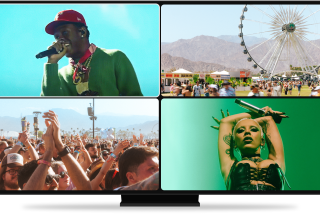YouTube getting TV shot from TiVo
YouTube, not happy to be just an Internet site, is expanding to the medium it has helped undermine -- the boob tube.
On Wednesday, TiVo Inc., the digital video recorder maker, announced that its customers would be able to watch YouTube videos on their TVs using one model of TiVo’s set-top box sometime this year.
Over the last year, it has been possible to watch YouTube videos on the television through other devices, such as Apple Inc.’s Apple TV.
But TiVo, which has more than 4 million subscribers, could make YouTube a television star.
YouTube has been a thorn in the side of traditional media ever since the video sharing website was created in 2005. Now owned by Google Inc., YouTube has faced criticism and legal trouble that it benefited from visitors copying TV shows and putting them on the site.
YouTube has also hastened the fracturing of how people, especially teenagers, get their entertainment, with many turning on their computers instead of TVs.
Monthly, 66 million viewers watch about 2.6 billion videos on YouTube, accounting for about 57% of the 116.7 million monthly online video audience, according to Nielsen Online.
A Harris Poll in December found that 65% of U.S. adults who were online had watched a video on YouTube, compared with 42% the previous year. Among people 18 to 24, 85% watched something on YouTube, compared with 73% the year before.
“Among all age groups, there’s interest in more video online, both professionally created and user generated,” said Jim Schaffer, vice president of client development for media and entertainment research for Harris Interactive.
“But clearly the younger age groups are clamoring for it more,” he said.
Many people already go to YouTube for the same reason they use TiVo -- to be able to watch TV when they want it. But with TiVo, YouTube might finally make it on the main home screen.
“It’s possible it could bring people back,” said Amanda Lenhart, senior research specialist at Pew Internet & American Life Project.
“But if it’s really complicated it probably won’t change how people watch their YouTube.”
--
More to Read
The biggest entertainment stories
Get our big stories about Hollywood, film, television, music, arts, culture and more right in your inbox as soon as they publish.
You may occasionally receive promotional content from the Los Angeles Times.










